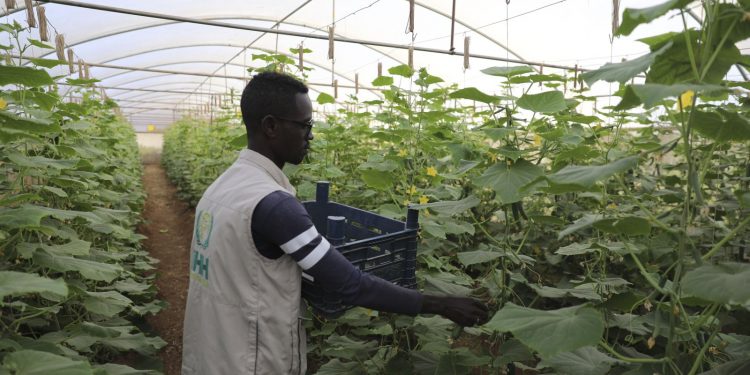In the heart of conflict-ridden Somalia, a remarkable revolution is unfolding as greenhouses emerge as agents of change, reshaping the lives of its people. From bustling markets where carts brim with locally grown vegetables to the transformation of nomadic pastoralists into settled farmers, Somalia is witnessing a profound shift in its agricultural landscape.
For shoppers like Sucdi Hassan in the vibrant capital of Mogadishu, the allure of organic, fresh, and locally sourced produce is irresistible. “They are organic, fresh and healthy,” she affirms, emphasizing the sense of security that comes from supporting local farms.
This burgeoning trend symbolizes a semblance of stability amid three decades of conflict and the ravages of climate extremes such as droughts and floods. The proliferation of over 250 greenhouses in Mogadishu and its environs has revolutionized food security, ensuring a steady supply of fruits and vegetables year-round, a stark departure from the era of importing even basic staples like cucumbers and tomatoes.
Somalia’s Minister of Youth and Sports, Mohamed Barre, underscores the pivotal role of greenhouses in alleviating logistical challenges and reducing costs associated with food imports, heralding a new era of self-sufficiency and economic empowerment.
In a country where a staggering 75% of the population comprises young individuals under 30, grappling with unemployment, the rise of greenhouses is a beacon of hope. Agriculture graduate Mohamed Mahdi, tending to crops in a greenhouse on the outskirts of Mogadishu, epitomizes the transformative impact of these initiatives. “Given the high unemployment rate, we are grateful for the chance to work in our chosen field of expertise,” the 25-year-old expresses, embodying a newfound sense of purpose and opportunity.
Simultaneously, traditional pastoralist communities face a paradigm shift as they confront the stark realities of climate change, witnessing the decimation of their livestock. Mohamed Okash, Director of the Institute of Climate and Environment at SIMAD University, advocates for the transition to greenhouse farming as a resilient and sustainable livelihood alternative for these communities, urging increased investments in smart farming practices to combat food insecurity.
As Somalia embraces this greenhouse revolution, it not only secures its food future but also nurtures a generation of empowered youth and resilient communities, fostering a brighter tomorrow amidst the trials of the past.












